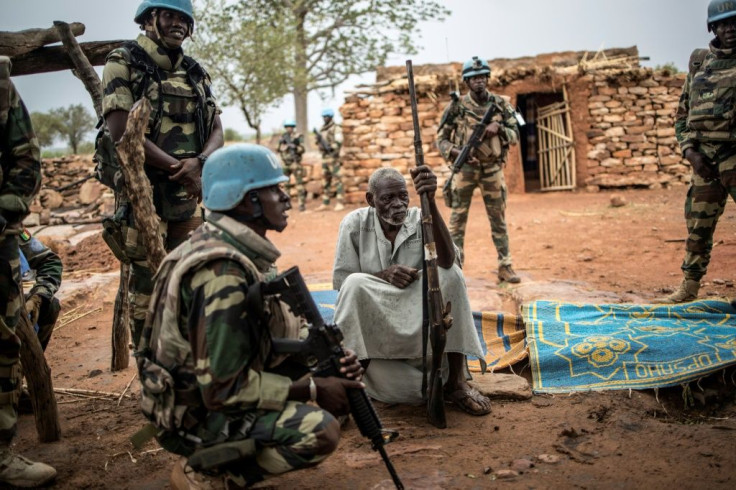Conflict In The Sahel: Origins, Debate And Future Outlook

Thirteen French soldiers died Tuesday in a mid-air helicopter collision in Mali, highlighting a worsening security situation in the Sahel and casting doubt on efforts to contain the violence.
A mostly Tuareg rebellion erupted in Mali in 2012 and seized much of the country's north, declaring independence.
Jihadists -- who were at first allies of the separatists -- subsequently drove them out and took control of several towns and regions.
France deployed troops to Mali in January 2013 after the jihadist advance threatened the capital Bamako.
In an operation named Serval, French soldiers chased the jihadists from the northern cities but failed to dislodge them from their rural strongholds.
Jihadist activity has since spread to the centre of Mali, into western Niger and to the north and east of Burkina Faso, inflaming ethnic tensions along the way.
Thousands of civilians and militants have died, while hundreds of thousands have fled their homes in the face of regular attacks.
Poorly trained and under-equipped Sahel troops who have been at the frontline since 2012 have taken a heavy toll.
The European Union sent special army-training mission in 2013.
United Nations peacekeepers have also been on the ground since 2013. The 13,000-strong force in Mali, called MINUSMA, is one of the UN's largest deployments.
It is also one of its deadliest: More than 200 Blue Helmets have been killed in Mali to date.
France has expanded its operations, launching Operation Barkhane in 2014 to fuse Serval with troops from another deployment in Chad.
Barkhane is France's largest foreign expedition, and its 4,500 soldiers operate across the Sahel.
At France's urging, Sahel countries also created the so-called G5 force in 2017, an alliance grouping Burkina Faso, Chad, Mali, Mauritania and Niger.
France hopes the force will provide a long-term solution to security issues in the Sahel, but it has yet to have its desired effect.
The presence of thousands of soldiers, whether African or French, has failed to stop the jihadist expansion into a mosaic of forces claiming allegiance to groups including Al-Qaeda, the Islamic State and Ansarul Islam.
Attacks occur nearly every week. Spread out over a vast territory, jihadists often gather just before an attack, usually targeting symbols of state and foreign militaries.
This autumn was particularly deadly, with more than 170 Malian and Burkinabe soldiers killed since September. And 14 French soldiers have died since the start of November.
Doubts abound over the ability to defeat the jihadists.
"What other strategies are there? You need strategic patience and perseverance, that's fundamental," General Pascal Facon, Barkhane's commander, told AFP early this month.
He added, however, that "we can easily understand that this might be questioned".
French Defence Minister Florence Parly told AFP during a recent visit to the Sahel that "the security situation is obviously difficult" -- while adding that the fight against jihadists was a long-term commitment.
Experts agree that French soldiers will be in Mali for a long time to come.
France -- which as the former colonial power, has always kept a military foothold in the region -- sees bolstering national armies as the key to overcoming the conflict.
West African coastal states, some of which have suffered jihadist attacks themselves, have offered to help tackle the region's insecurity, pledging to contribute $1 billion (900,000 euros) to the effort.
France meanwhile is pushing its European allies to engage more, and a new unit of European special forces is due to deploy in Mali in 2020.
Foreign military activity is taking place against a backdrop of growing local resentment, however.
Sahel countries and their partners are promoting development projects to stop jihadists from laying down firm roots in rural areas.
© Copyright AFP 2024. All rights reserved.




















